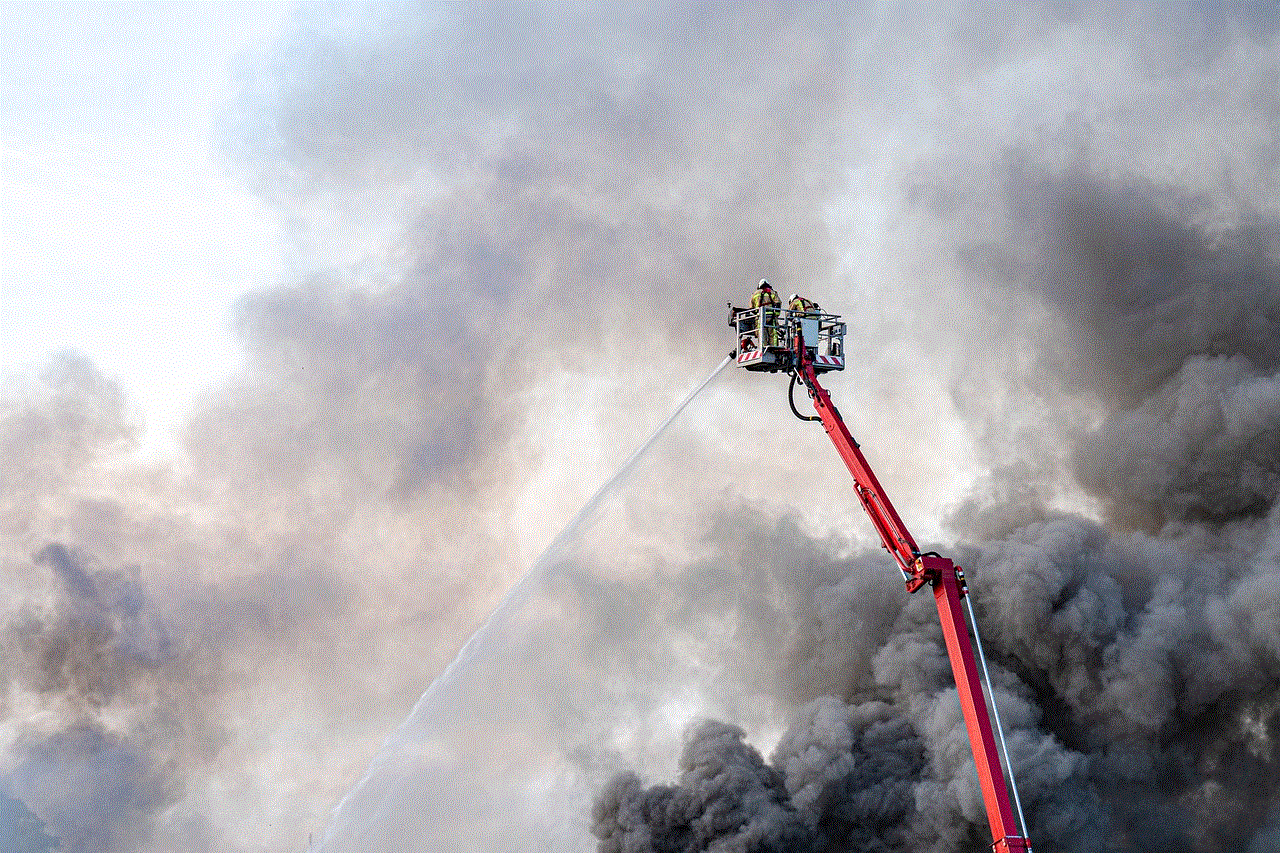how to block someone on slack
Slack is an incredibly useful tool for communication and collaboration among teams, but sometimes there may be a need to block someone on the platform. Whether it’s due to a personal conflict or inappropriate behavior, knowing how to block someone on Slack is an important skill to have. In this article, we’ll discuss the steps to block someone on Slack, as well as the reasons why it may be necessary.
Firstly, let’s define what it means to block someone on Slack. When you block someone on Slack, it means that you are preventing them from sending you direct messages, adding you to channels, or mentioning you in conversations. However, they will still be able to see your messages in public channels and can still interact with you through other members of the team.
Now, let’s dive into the steps for blocking someone on Slack. The process is relatively simple and can be done in a few clicks. Here’s what you need to do:
Step 1: Open the Slack app or website and log in to your account.
Step 2: Find the person you want to block by typing their name in the search bar at the top of the screen.
Step 3: Click on the person’s name to open their profile.
Step 4: In the top right corner of their profile, you’ll see a gear icon. Click on it to open the menu.
Step 5: From the menu, select “Block [person’s name].”
Step 6: A pop-up window will appear, asking for confirmation. Click on “Yes, block [person’s name].”
And that’s it! The person will now be blocked on Slack, and you will no longer receive any direct messages or notifications from them. However, it’s important to note that this action is irreversible, and you won’t be able to unblock them in the future. So make sure you’re certain about blocking someone before going through with it.
Now that we’ve covered the technical aspect of blocking someone on Slack, let’s discuss the reasons why you may need to do so.
1. Personal Conflict
Unfortunately, conflicts can arise between team members, and sometimes it’s best to limit communication with certain individuals. If you find yourself in a personal conflict with someone on Slack, blocking them can help reduce tension and make your work environment more peaceful.
2. Inappropriate Behavior
Inappropriate behavior can take many forms, from harassment to offensive language and images. If you come across any such behavior from a team member on Slack, it’s best to block them immediately and report the issue to your team leader or HR department.
3. Distractions
Slack can be a highly distracting platform, and sometimes, it’s necessary to limit communication with certain team members to stay focused on your work. If someone is constantly messaging you or tagging you in conversations, blocking them can help you maintain your productivity.
4. Unwanted Sales or Marketing Messages
If you’re a part of a public Slack community, you may receive unwanted sales or marketing messages from other members. If someone is constantly spamming you with promotional messages, blocking them is the best course of action to avoid any further communication.
5. Prank Messages
Slack also has a feature called “Slash Commands,” which allows users to send funny or prank messages to their team members. While these commands can be entertaining at times, they can also be disruptive and annoying. If you find yourself on the receiving end of too many prank messages, blocking the person responsible can put an end to it.
6. Protecting Your Privacy
Slack allows users to see each other’s email addresses, phone numbers, and other personal information. If you don’t want a particular team member to have access to this information, blocking them is the best way to protect your privacy.
7. Dealing with a Toxic Team Member
Unfortunately, not all team members are easy to work with, and sometimes, there may be someone who creates a toxic work environment. If you’re dealing with a toxic team member on Slack, blocking them can help you avoid unnecessary conflict and maintain your mental well-being.
8. Ending a Professional Relationship
In some cases, you may need to block someone on Slack because your professional relationship with them has come to an end. Whether it’s a former colleague or a client, blocking them can help you move on from that chapter and focus on your current work.
9. Avoiding Unnecessary Notifications
Slack can be a busy platform, with constant notifications and messages. If someone is constantly sending you unnecessary messages or tagging you in conversations that don’t concern you, blocking them can help you reduce the noise and stay focused on your work.
10. Protecting Your Mental Health



Lastly, blocking someone on Slack can also be a way to protect your mental health. If you find yourself constantly stressed or anxious due to interactions with a particular team member, blocking them can help you maintain your well-being and continue working in a healthy environment.
In conclusion, knowing how to block someone on Slack is an essential skill that can help you maintain a healthy and productive work environment. It’s a simple process that can be done in a few clicks, but it’s important to use it wisely and only when necessary. By following the steps outlined in this article and considering the reasons why you may need to block someone, you can effectively manage your interactions on Slack and create a positive work environment for yourself.
facebook says no internet
In today’s fast-paced world, social media has become an essential part of our lives. With billions of users worldwide, facebook -parental-controls-guide”>Facebook stands out as one of the most popular social networking platforms. However, despite its widespread usage, there are times when users encounter issues while trying to access Facebook. One of the most common problems faced by users is when Facebook says “no internet.” This error can be frustrating and can disrupt one’s online activities. In this article, we will delve deeper into the possible causes of this issue and explore various solutions to resolve it.
Before we dive into the solutions, it is essential to understand the meaning of the error message “Facebook says no internet.” This message typically appears when a user tries to access Facebook but is unable to do so due to a lack of internet connection. This can happen due to various reasons, ranging from network issues to device-related problems. Let us now take a closer look at some of the possible causes of this error.
The most common reason for Facebook saying “no internet” is a weak or unstable internet connection. If you are using a Wi-Fi network, the signal strength may not be strong enough, or there may be disruptions in the network. Similarly, if you are using a cellular data connection, it could be due to a poor network reception or data limitations on your plan. In such cases, the first step is to check your internet connection and ensure that it is stable and strong enough to support accessing Facebook.
Another possible cause of this error could be due to a faulty router or modem. If your internet connection is fine, but you are still unable to access Facebook, it could be a problem with your router or modem. Try resetting your router or modem and then try accessing Facebook again. If the issue persists, you may need to replace your router or modem.
Sometimes, the problem could lie with your device. If you are trying to access Facebook from a mobile device, such as a smartphone or tablet, ensure that your device’s internet settings are configured correctly. Also, check if the Facebook app on your device is updated to the latest version. If not, update it from the app store and try accessing Facebook again.
Another cause of this error could be due to outdated or corrupted browser data. If you are accessing Facebook from a web browser on your computer , try clearing your browser’s cache and cookies. This will remove any stored data that may be causing conflicts with accessing Facebook. You can also try using a different web browser to see if the issue persists.
In some cases, the problem could be with Facebook’s servers. If Facebook’s servers are down, users may encounter the “no internet” error message. In such cases, the only solution is to wait for Facebook to resolve the issue on their end. You can also check social media platforms like Twitter to see if other users are experiencing similar problems.
Another possible cause of this error could be due to a conflict with your firewall or antivirus software. Sometimes, these programs may block access to certain websites, including Facebook. In such cases, you can try temporarily disabling your firewall or antivirus software and see if that resolves the issue. If it does, you may need to adjust the settings on these programs to allow access to Facebook.
If none of the above solutions work, there could be a problem with your device’s DNS settings. DNS (Domain Name System) is responsible for translating website names into IP addresses, allowing your device to connect to the internet. If there is a problem with your DNS settings, you may encounter issues while trying to access certain websites, including Facebook. To fix this, you can try changing your DNS settings to a public DNS server like Google’s 8.8.8.8 or Cloudflare’s 1.1.1.1. Instructions on how to change your DNS settings can be found online.
Apart from the technical reasons mentioned above, there could also be other factors contributing to the “Facebook says no internet” error. For instance, if you have exceeded your data limit on your internet plan, your ISP (Internet Service Provider) may restrict your access to certain websites, including Facebook. You can check with your ISP to see if this is the case and take necessary actions to resolve the issue.
Moreover, if you are accessing Facebook from a workplace or a school, the network may have restrictions in place that prevent access to social media platforms. In such cases, you may need to seek permission from the network administrator to access Facebook or use a personal device with a different internet connection.
In conclusion, the “Facebook says no internet” error message can be frustrating, but it is not a cause for major concern. In most cases, the issue can be easily resolved by troubleshooting the possible causes mentioned above. However, if the problem persists, it is best to seek help from a technical expert or contact Facebook’s support team for further assistance. With the right approach and patience, you can overcome this issue and continue using Facebook without any disruptions.
unknown name unknown number keeps calling



An unknown name and unknown number flashing on your phone screen can be a cause of anxiety for many people. Who could it be? What do they want? Should I answer? These are just some of the questions that may run through your mind as the phone continues to ring. In today’s digital age, it is not uncommon to receive unknown calls from telemarketers, scammers, or even wrong numbers. However, when the calls become persistent, it can be quite unsettling. Let’s delve deeper into the reasons behind why unknown names and numbers keep calling, and what you can do about it.
1. Scammers and Fraudsters
One of the main reasons why unknown names and numbers keep calling is because of scammers and fraudsters. These individuals or groups use various techniques to trick people into giving away their personal information or money. They may pose as a representative from a bank, credit card company, or even a government agency. They can also use intimidating tactics, such as claiming that you have a warrant for your arrest or that a loved one is in trouble, to get you to divulge personal information. These calls can be quite convincing and may even use a spoofed number to appear legitimate. It is important to remember that no legitimate organization will ask for personal information over the phone, and if you are unsure, hang up and call the company directly to verify the call.
2. Telemarketers
Another common reason for unknown names and numbers to keep calling is telemarketers. These are individuals who are hired by companies to make cold calls in an attempt to sell products or services. Telemarketers use automated dialing systems to call a large number of people in a short amount of time, and sometimes the numbers are not updated, resulting in calls to wrong numbers. While some telemarketing calls may be legitimate, many people find them intrusive and annoying. To avoid such calls, you can register your number on the National Do Not Call Registry, which prohibits telemarketers from calling registered numbers.
3. Debt Collectors
If you have unpaid debts, you may receive calls from unknown names and numbers. These calls are from debt collectors who are trying to collect the money you owe. Debt collectors may use aggressive tactics, such as constant calls, threats, and harassment, to try and get you to pay. However, it is important to know your rights as a consumer. Debt collectors are not allowed to call you at unreasonable times, use abusive language, or threaten you with violence. If you are receiving such calls, you can ask for written proof of the debt and seek legal advice if necessary.
4. Wrong Numbers
As mentioned earlier, sometimes the calls from unknown names and numbers are just wrong numbers. With the increasing use of cell phones and the constant change of phone numbers, it is not uncommon for someone to accidentally dial the wrong number. You may also receive calls for someone who previously had your number. In such cases, it is best to politely inform the caller that they have the wrong number and end the call. If the calls persist, you can block the number or change your own number.
5. Robocalls
Robocalls are pre-recorded calls made through an automated system. They are used by companies for various purposes, such as reminders for appointments, surveys, or even political campaigns. However, they can also be used by scammers to trick people into giving away personal information. These calls can be quite persistent and can come from unknown names and numbers. If you receive a robocall, do not press any buttons or give out any personal information. Hang up and block the number if possible.
6. Phone Spoofing
Spoofing is a technique used by scammers to manipulate the caller ID to display a different name or number. This is done to make the call appear legitimate, increasing the chances of the call being answered. Phone spoofing can be used in combination with other techniques, such as posing as a representative from a legitimate organization, to deceive people into giving away personal information or money. If you receive a call from an unknown name and number, be cautious and do not give out any personal information.
7. Stalkers or Harassers
In some cases, unknown names and numbers may be a result of stalking or harassment. These individuals may use different numbers to call and harass their victims. They may also use spoofing techniques to make it difficult for the victim to identify the caller. If you are receiving such calls, it is important to take it seriously and document all the calls. You can also seek help from the police and change your number if necessary.
8. Phone Glitches
Sometimes, the reason for unknown names and numbers to keep calling may be a technical glitch. This can happen due to various reasons, such as outdated software, network issues, or even a malfunction in the phone itself. In such cases, the calls may appear from unknown names and numbers, and you may even receive calls from your own number. If you suspect a technical glitch, you can try restarting your phone or contacting your service provider for assistance.
9. Phone Apps
With the widespread use of smartphones, there are various apps available that offer free or cheap calling services. These apps use the internet to make calls and may display an unknown name or number when receiving calls. If you have such apps on your phone, it is possible that the calls you receive from unknown names and numbers are from someone using a similar app. While these apps can be useful, it is important to be cautious and not give out any personal information to unknown callers.



10. Phone Hacking
In rare cases, unknown names and numbers may be a result of phone hacking. This is when someone gains unauthorized access to your phone and uses it to make calls without your knowledge. They can also use your phone to make spoofed calls to deceive others. If you suspect your phone has been hacked, contact your service provider and take necessary measures to secure your phone.
In conclusion, there can be various reasons for unknown names and numbers to keep calling. While some calls may be harmless, others can be a cause of concern. It is important to be cautious and not give out any personal information to unknown callers. You can also use call blocking and caller ID features on your phone to avoid unwanted calls. If the calls become persistent and intrusive, do not hesitate to seek help from the relevant authorities. Remember, your safety and privacy should always be a top priority.